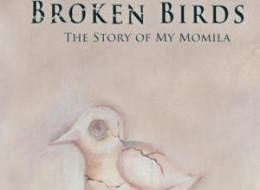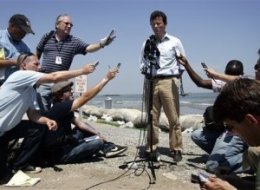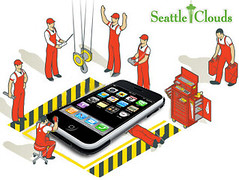 Image via CrunchBase
Image via CrunchBaseWell, it looks like Amazon might be dragging the big publishing companies into the new technology once again.
One of my main complaints with eBooks has always been that the publishing companies were raking in extra cash at the expense of both the artist and the consumer: with eBooks being sold at the same or similar price as physical books in most cases, publishers were successfully eliminating printing and shipping costs, but without passing the those savings onto to the artist through larger royalties, or the consumer with lower prices.
Tackling this issue has been a long time coming. The massive writer's strike in the entertainment industry a couple of years ago was over very similar circumstances; distribution companies were tapping into extra income streams through new media distribution channels (such as streaming video and video on demand), but were being extremely vague about these new ventures when it came to sharing royalties with writers under contracts written up before the explosion of communications technology advancements. It is actually shocking that book publishers have been able to deflect similar arguments and concerns for so long.
Now, with Amazon offering 70% royalties for sales on books priced between $2.99 and $9.99, Amazon is effectively forcing the publisher's hand on their sketchy pricing policies regarding new technology book sales, while also easing criticisms of their price reduction policies. This should not only improve writer confidence in releasing works in eBook format, but the lower pricing involved with the royalty shift should also result in increased book sales. Of course, Kindle sales might also increase a bit, which I'm sure is one of the main motivating factors behind the move.
I'm sure a lot of people in the industry will have some very persuasive and logical arguments on why this new royalty scale for eBook publishing is a bad thing. But I seriously doubt any of them will be able to convince me that either the publisher or the artist will stand to lose any money.









![Reblog this post [with Zemanta]](http://img.zemanta.com/reblog_e.png?x-id=60ffa128-171f-4476-81d5-7553eb599e3f)

![Reblog this post [with Zemanta]](http://img.zemanta.com/reblog_e.png?x-id=d090410d-5c8e-4418-9723-0a2e58ae4c7f)